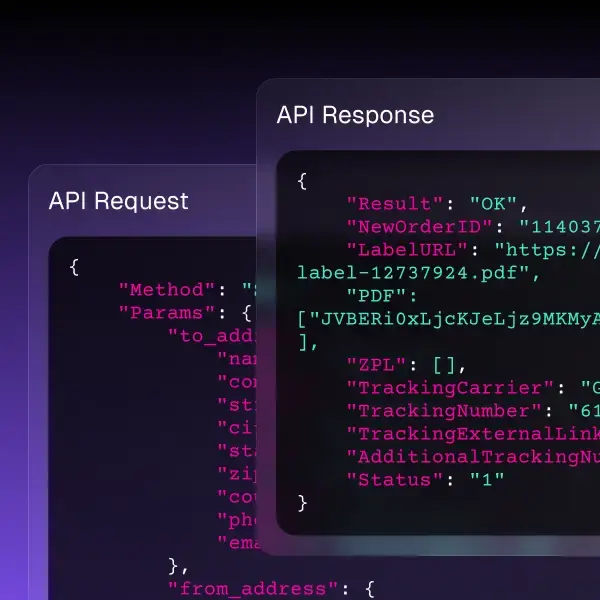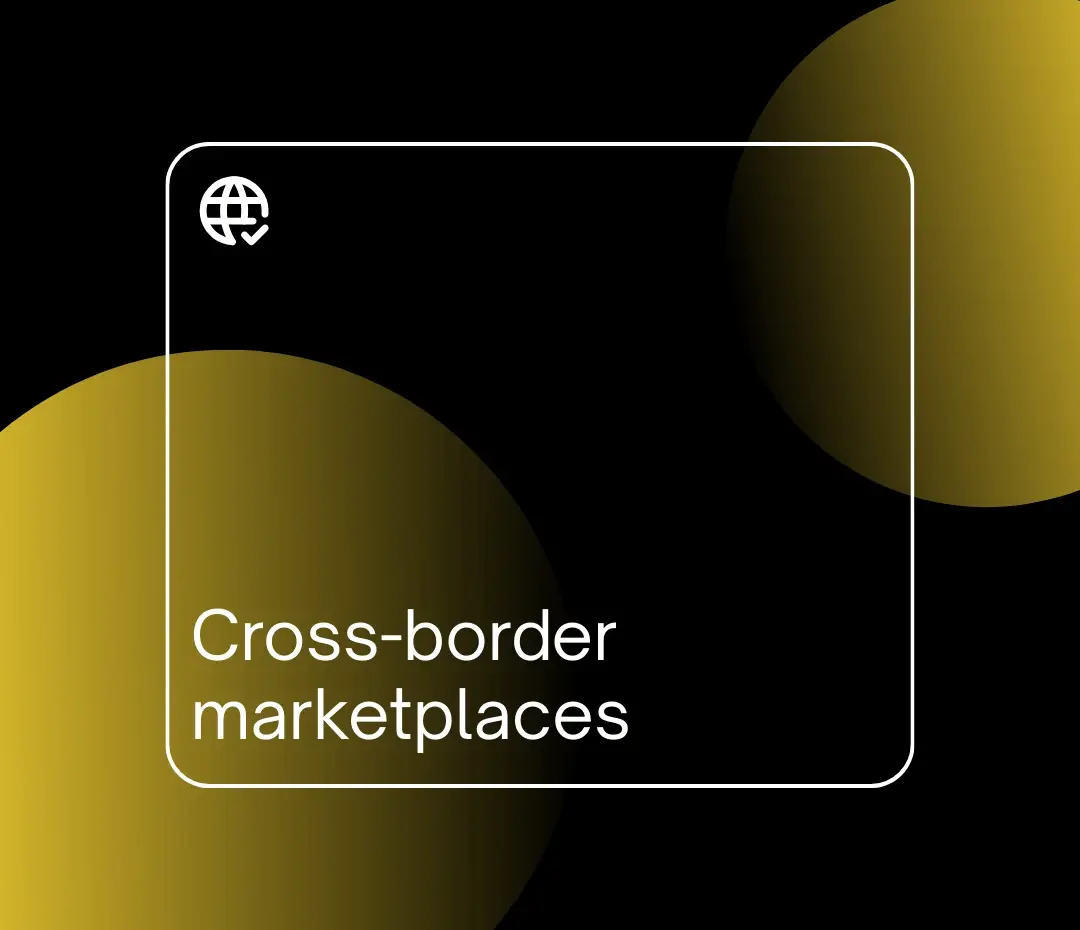Sustainable ecommerce: respond to consumer demand

Did you know that 50% of consumers are willing to pay more for a product if a business is seen as environmental and ethical? (Deloitte)
The pandemic may have been dominating the global consciousness for the past 18 months, but climate change remains a key concern for today’s consumers. A billion people in 192 countries celebrated Earth Day on April 22nd this year (United Nations), and in many parts of the world climate change outranks both infectious diseases and terrorism as the greatest perceived threat (Pew Research).
Here we reveal the ever-growing importance of sustainability to today’s consumers and the companies meeting their needs – from FedEx Express, one of the most sustainable cross-border Carriers, to the 10 most sustainable marketplaces in Europe.
More sustainability please: the growing call for greener retailers
According to a recent study by Deloitte comparing attitudes pre-and-post pandemic, sustainability remains front of mind for consumers in 2021, with 32% describing themselves as ‘highly engaged’ with creating a more sustainable lifestyle.
Of course where, how and from whom they buy their products is paramount: 46% of consumers want clarity on where products are coming from and 28% have stopped buying from a brand due to environmental and ethical concerns.
Interestingly, when it comes to altering behaviour to be more environmentally friendly, developing countries are leading the way. Recent figures indicate that 88% of consumers in India and 85% in China have changed their shopping habits due to concerns about climate change (Statista), a useful insight if you’re looking to find new customers in these vast and fast-growing ecommerce markets.
Balancing sustainability with the surge in cross-border ecommerce
This push for greater brand sustainability is happening at the same time as cross-border ecommerce is experiencing exponential growth – two times the rate of domestic online shopping, according to Accenture.
Consumers may be increasingly aware of the environmental impact of long-distance shopping and shipping, but they still want to buy international goods. One recent study found that 55% of us have bought a product from a seller in another country in the past year (FIS), citing lower prices, greater choice and lack of local availability as key drivers.
This growth is exciting for ecommerce businesses and the cross-border logistics industry, which experts predict will have grown by 11% to $44.61 billion by 2025 (Infiniti Research Limited). However, with more and more of the world’s consumers looking to buy products from eco-aware and ethical businesses, cross-border ecommerce businesses looking for long-term global success must prioritise sustainability throughout their supply chain.
The five sustainable practices consumers value most
According to Deloitte, the sustainable and value-led business practices that today’s consumers care the most about are:
- Waste reduction
- Reducing carbon footprint
- Sustainable packaging
- Embracing ethical work practices
- Respecting human rights
Focusing on improving in these areas will help you appeal to more consumers both today and tomorrow. Look at what your local government has to offer, as most have bodies or initiatives aimed at helping businesses to up their green credentials.
A key way you can increase your sustainability of course is by choosing a logistics provider committed to climate change action, and according to one recent study, FedEx leads the way.
FedEx being recognized as one of the most sustainable cross-border logistics companies
The knowledge and research platform, Cross-Border Commerce Europe, recently analysed the sustainability of 16 of Europe’s top logistics companies – and FedEx came in at number one.
The household name, which has been delivering parcels around the world for over 50 years, outranked other major Carriers including DHL, Parcelforce and DPD.
This is no surprise. FedEx has long been aiming to tackle climate change. It’s making some serious strides, and its goal is to achieve carbon-neutral operations globally by 2040.
To get there, FedEx has designated more than $2 billion of initial investment in three key areas: vehicle electrification, sustainable energy and carbon sequestration. It’s also pledged $100 million to help establish the Yale Center for Natural Carbon Capture.
Other sustainability efforts include the development of Roxo, the futuristic FedEx SameDay Bot designed for autonomous last-mile delivery. This clever little parcel-carrying robot, which can climb curbs and even power up steep steps, helps speed up delivery in congested areas.
Working with a company like FedEx for your cross-border deliveries can help you increase your sustainability and meet the environmental expectations of consumers. To learn more about what FedEx is doing for the planet, visit https://www.fedex.com/en-gb/about/sustainability.html. You can also find out about its impressive social responsibility program in the latest Global Citizenship Report.
Other cross-border businesses and marketplaces rising to the challenge
Alongside FedEx, businesses and marketplaces around the globe are becoming increasingly aware of the value of sustainability – for the planet and for their bottom line. As an example, nearly half of all businesses in the UK are planning to invest more money in their green efforts, looking to increase efficiency and remain competitive. (Business Green).
“Sustainability has become – and will continue to be – the baseline driver of cross-border development,” explains Carine Moitier, founder and managing director of Cross-Border Commerce Europe, which as well as analysing logistics companies, named Europe’s Top 100 Sustainable Marketplaces.
Here we reveal its pick of the top 10.
The top 10 sustainable global marketplaces operating in Europe.
1: eBay (U.S.)
With many of its offices running on 100% renewable energy and huge commitments to economic empowerment and charitable giving, eBay tops the list. A giant of circular commerce, the first thing it ever sold was a broken laser pointer in 1995.Among other inspirational goals,it’s aiming to raise $600 million in funds to support global charities by 2025 and that same year it plans to have reduced carbon emissions by 50% – with a goal of 75% by 2030.
2. Redbubble (Australia)
This creative marketplace allows users to upload their artwork to be printed on a variety of products. With over 700,000 users, it prides itself on both being a source of affordable art and a leader in sustainability and social responsibility. 95% of Redbubble packages come from the same region in which they were ordered; Redbubble’s committed to offsetting carbon emissions through strategic investment partnerships; and it makes sure all partners adhere to strict codes of conduct around humane working conditions.
3. Etsy (U.S.)
Coming in at number three is the ecommerce site Etsy, which boasts a number of sustainable accolades, including diverting 95% of waste from landfills or incineration across its offices in 2020 and aiming to be powered by 100% renewable electricity by 2022. 98% of the company’s entire emissions stem from items shipped from sellers to their buyers.
4. Rakuten (Japan)
Aiming for 100% renewable power by 2050, Japan’s biggest online retailer says sustainability innovation lies at the heart of everything it does. A few highlights include minimising the use of materials by using appropriate package sizing and collecting and recycling products from its customers. Rakuten’s also invested in reducing re-deliveries, which account for 20% of home deliveries in Japan and generate additional CO2 emissions.
5. Amazon (U.S.)
Number five on our list is online behemoth, Amazon, which is aiming for 50% of all shipments being zero carbon by 2030. It also recently made the largest ever order of electric delivery vehicles – 100,000 – and is aiming to power its operations with 100% renewable energy by 2025. Amazon’s $2 billion climate pledge fund is earmarked for companies building products, services and technologies that decarbonise the economy and protect the planet.
6. Amazon Handmade (U.S.)
Connecting customers with local small businesses that sell handcrafted products, this marketplace features sustainable and curated collections of items from U.S. and EU based makers. Part of the EU’s Waste of Electrical and Electronic Equipment (WEEE) Directive, Amazon Handmade facilitates the recycling of items. On top of this, by partnering with third-party certifications and creating their own, Compact by Design, Amazon and Amazon Handmade help buyers pick products that meet sustainability standards.
7. Threadless (U.S.)
On this innovative crowdsourcing platform, users create designs to put on products, vote on them and buy the winning designs. Committed to being an “Earth-friendly print-on-demand solution”, its sustainability credentials include using 100% non-hazardous, biodegradable, vegan ink and decreasing shipping distances for a more localised and sustainable supply chain. On top of this, Threadless vendors are all certified by the Worldwide Responsible Accredited Production (WRAP) program, which pushes for the highest standards of safe and sustainable production.
8. Bol.com (the Netherlands)
An online marketplace that serves consumers in the Netherlands and Belgium, Bol.com, alongside new items, features over 20 million secondhand items to help consumers make an eco-conscious choice. 14,000 products on the platform have a sustainability ecolabel and the company uses 100% renewable energy in its warehouses, offices and data centres. Dedicated to minimising packaging, Bol.com plans on being climate neutral – with 0 grams of CO2 emissions per package – by 2025.
9. StockX (U.S.)
StockX describes itself as the world’s first “stock market for things”. On this trail-blazing resale site, buyers place bids, sellers place asks and when a bid and ask meet, the sale happens automatically. It sells a diverse range of products, but it’s renowned for trainers. As well as being seriously innovative and a big player on the circular fashion scene, StockX promotes sustainable brands and products, for example trainers made of recycled materials.
10. Leboncoin (France)
Another star performer on the circular consumption stage, the French selling platform Leboncoin works hard to raise awareness of the environmental benefits of re-using. You can buy new goods on the marketplace – and even houses – but it’s renowned for resales: 7.7 tonnes of CO2 are saved in one year in France by people consuming secondhand on Leboncoin. The company also supports the Repair Café Association, free monthly initiatives that extend the life of objects by teaching the public how to repair them.
Join ShippyPro in going green
Sustainability is also front of mind at ShippyPro. We are constantly working on reducing our ecological footprint with a sustainable mindset, a paperless policy in our office and reforestation activities.
With logistics solutions such as ShippyPro’s CO2 Impact API, we help businesses calculate the CO2 emissions of their shipments, supporting their sustainability strategy with reliable data. You can also check out our 5 tips for a more sustainable future.
Through simplicity and innovation, we want shipping to not only be accessible for everyone, but for it to make our planet a more connected place.
We will continue to lead with a clean, green mindset for our partners and our customers. Will you join us in the sustainability revolution?
Discover more about ShippyPro, the complete shipping platform to easily manage your ecommerce orders, and start trying our features with 250 free orders.
Why use ShippyPro together with FedEx for your shipments
With our FedEx integration, you can make life even easier when it comes to selling cross-border, managing all your shipments and returns for your ecommerce store from one portal. We also offer integrations with a large number of sales channels and marketplaces so you can choose the ones that best suit your product base.
FedEx
Sign up with FedEx & Save 40%!
Click on your country name to access to your localized sign up link.
ShippyPro
Sign up here to ShippyPro to connect your online sales channels & try it for free for your first 250 orders!
FedEx + ShippyPro
Once the FedEx account will have been created, you will be able to connect it to ShippyPro by clicking on FedEx logo in the Carrier connexion section.
Sources
ShippyPro is the complete shipping software for online and offline retail. With Label Creator, Track & Trace, Easy Return and Analytics features, our software simplifies your shipping operations. ShippyPro integrates with over 180 carriers and 80 sales channels, making it compatible with a wide range of products and use cases.









